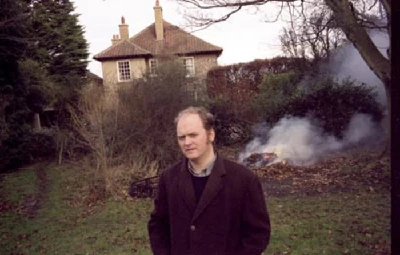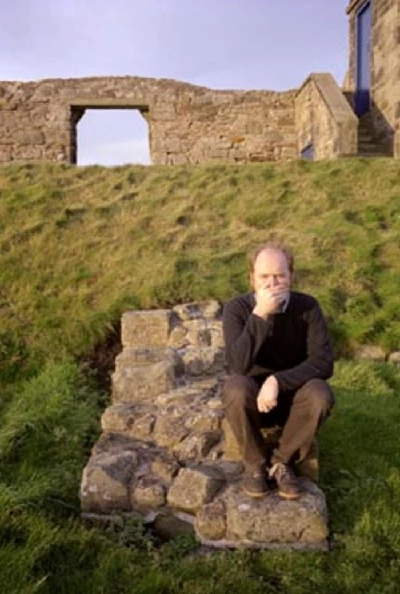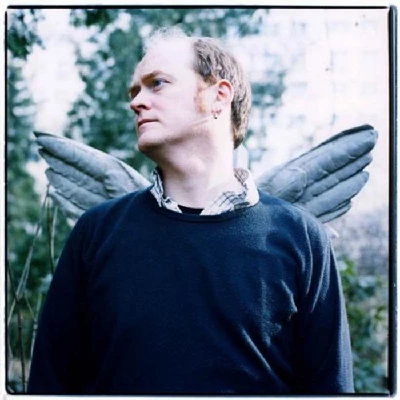published: 23 /
11 /
2007

Anthony Dhanendran speaks to folk singer James Yorkston about his third and latest album 'The Year of the Leopard Song', his musical and other influences, and his recent decision to play shorter tours
Article
James Yorkston has bought a house. “It's just up the coast from where I used to live,” he says. “I've spent the last few months doing it up.” That, and writing his new album. He says that, having moved from Edinburgh, from what he describes as “a fifteenth century mansion, of which ten or eleven rooms were rented by musicians”. Whereas this time round he's living in a more remote place and, crucially, he's got more to do. The difference is that “this time there isn't so much time.”
He's playing two Christmas shows at the intimate Luminaire in Kilburn, north London, which tend to have a festive theme (they're preceded by shows in Glasgow, Edinburgh and Brighton), although Yorkston says he may not repeat last year's instruction for fans to come in fancy dress. “I was dressed as a Geisha, in full make-up, and the band were in fancy dress, and so were maybe six or seven of our friends, but everyone else was in normal dress,” he laughs. The last London show he did was at the Union Chapel, and it sold out, but, despite the band's ability to play and fill larger venues, he's happy to be going back to the Luminaire “because it's a nice place”.
Does he prefer playing with the band, or the gigs where he's on his own? “I guess if I had to pick one for the rest of my life it would be with the band, but I love playing solo. I enjoy both. It's completely different playing solo – it's more challenging because you have to make each song sound different, even though it's all just me with a guitar and maybe a harmonica.”
Touring must get tiring after all this time, though? “I do find that I get tired. But I don't really do the massive tours that I used to. On the second album. 'Just Beyond the River', we'd tour for months, but there'd be a cut-off point after about six weeks, where you'd lose interest and just want to go home. But now I try to keep the tours small. I try to keep them to two-week chunks. Also, a lot of my touring now is in interesting places, so I get to meet old friends. You meet people you've met on tour before, people who work in the industry – DJs, bands, promoters. They've always got stories to tell about the last guy who was through there, or whatever. It's great touring and it's great getting home.”
Yorkston's third record and last album, 'The Year of the Leopard', seemed to be heading in a more traditionally folky direction (he's been quoted as saying he hates the F word because of its traditionalist connotations). “Maybe it sounded a little more naïve. I played most of it myself. Most of the songs were written before Paul (producer Paul Webb of Talk Talk, aka Rustin Man-AD) came on board. Maybe it's more folksy – with an S. What I meant by naïve is that a lot of it was me playing the clarinet, or me playing the concertina. And I can't play the clarinet. But I try to play them, you know?”
Two of the names that crop up whenever James Yorkston talks about his influences are 60's and 70's English folk singer Anne Briggs, and Malagasy guitarist D'Gary. The music of Briggs is, on the face of it, more obvious as a discernible influence when you listen to the Athletes. But D'Gary was “a real influence: when I heard his album Malagasy guitar, that's when I went out and bought a guitar.” He recounts D'Gary once coming to play in England, which he was excited to attend, only to find that D'Gary and his band were playing on the back of a flat-bed truck to a bemused and uninterested crowd. That must have been quite disappointing ? “No, it was amazing. It was amazing to see him. I'd kind of built this guy up in my head, and I was really excited. I'd got a friend of mine to come along, and he was really looking forward to it, too” It turned into a kind of road trip, he says. “But in the square there were only about 30 people – about 20 old grannies and some passers-by. At one point a group of local neds walked past carrying a blow-up Anne Summers doll.”
The press release for the Athletes' last album included a list of names – influences and comparisons, most of whom were musicians. One that stood out was that of the novelist Richard Brautigan, author of 'Trout Fishing in America'and creator of the imagined library of books. What was it about him that was an influence ? “Oh, well, what happens is that when you put out a record, someone from the record company phones up and you have to say something interesting for them. Lyrically, he's definitely an influence. His early stuff is amazing. That and the fact that he didn't just stay and do one thing. It didn't make for a good career, but towards the end he brought it all back round.”
He cites American singer-guitarist Michael Hurley as another influence: “He was amazing in the 1960's and he reached his peak in the mid-70's. He made six or seven really strong albums without paying much attention to the trends or fashions of the time. In the UK when he's here, he plays to about 20 people. It's really sad. I was offered a tour with him, but I had to turn it down because I had other commitments.”
Yorkston says he doesn't really want to follow Hurley's career path, such as it is. “I played a show in Norwich, and the last time I was there, there were maybe 20 people in the audience. I was standing on stage and I thought, 'I really like Michael Hurley, but when I'm his age I don't want to be standing here playing in front of 20 people.'”
Picture Gallery:-

